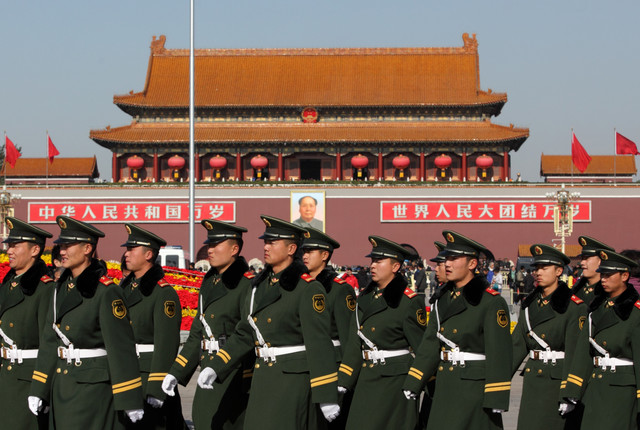Pentagon Releases New National Military Strategy
Yesterday, Chairman of the Joint Chiefs of Staff General Martin Dempsey unveiled the the Pentagon's new 2015 National Military Strategy. Revising the 2011 National Military Strategy, General Dempsey indicated that the security landscape the United States faces is dramatically different than four years ago.
Published by The Lawfare Institute
in Cooperation With

Yesterday, Chairman of the Joint Chiefs of Staff General Martin Dempsey unveiled the the Pentagon's new 2015 National Military Strategy. Revising the 2011 National Military Strategy, General Dempsey indicated that the security landscape the United States faces is dramatically different than four years ago.
According to General Dempsey, the United States now faces "multiple, simultaneous security challenges from traditional state actors and transregional networks of sub-state groups — all taking advantage of rapid technological change." The new strategy notes that the United States is "more likely to face prolonged campaigns than conflicts that are resolved quickly… that control of escalation is becoming more difficult and more important… and that as a hedge against unpredictability with reduced resources, we may have to adjust our global posture.” Accordingly, he concludes that a military conflict with a major power is "low but growing."
The strategy also emphasizes the growing threat of what it calls "[h]ybrid conflicts" wherein "state and non-state actors working together toward shared objiectoves, employing a wide range of weapons such as we have witnessed in eastern Ukraine." Such conflicts present new challenges as they "serve to increase ambiguity, complicate decision-making, and slow the coordination of effective responses. Dempsey concludes that "due to these advantages to the aggressor, it is likely that this form of conflict will persist well into the future.”
In addition to calling out Russia, the document also points to Iran and North Korea as threats to both U.S. and global security. While critical of China's actions in the South China Sea, Dempsey begins the paragraph on the People's Republic by stating the the United States "support[s] China's rise and encourage[s] it to become a partner for greater international security."
You can read the full strategy document here.





